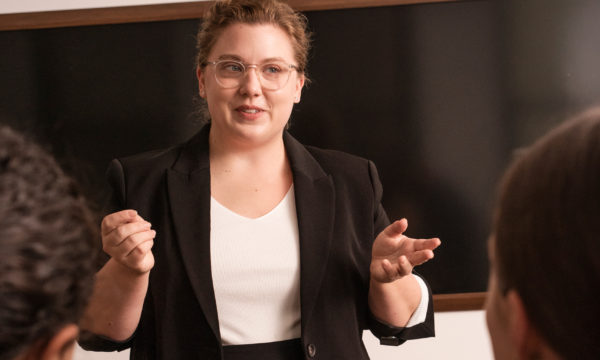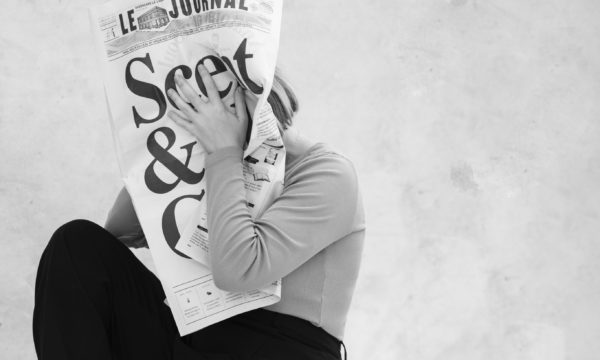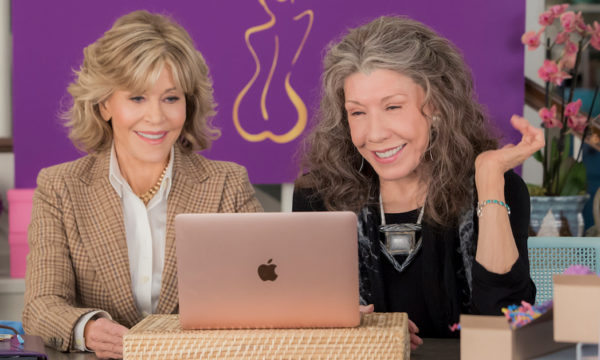Dealing with Menopause at Work
December 20, 2019 | Filed in: Your Career
Menopause. It’s not a word you hear tossed around the office very much. This is despite the fact that most women go through menopause during the peak of their careers and will likely experience the related disruptions—hot flashes, heavy periods (yes, before they go away, they actually get worse), insomnia, brain fog, and mood swings—while they’re at work.
Few stages in a woman’s life are as maligned, feared, and stigmatized, but by the time they reach midlife, women are well-practiced at concealing the female functions of their bodies. As teens, we faced ridicule for “being on the rag.” During pregnancy, we conceal our growing bumps (and aches and pains) as much as possible. And in mid-life, as our monthly cycles jitter to an exhaustively drawn-out halt, we are expected to remain competent, alert, and in control of our emotions—even if hormonal maelstroms make us feel the exact opposite.
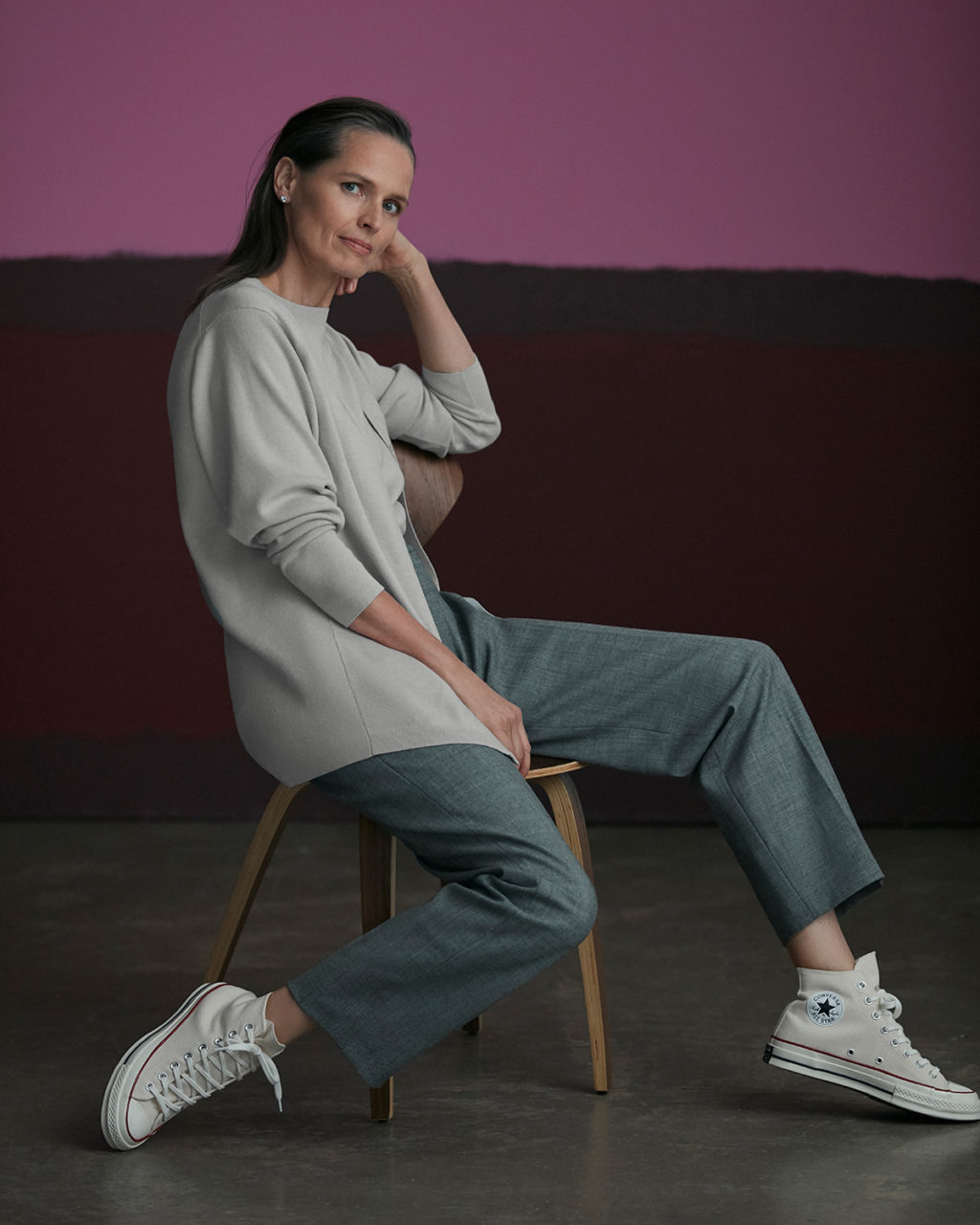
The Barbara top, the Leigh cardigan, the Elliot trouser, and the Bezel earrings.
And so we suffer quietly, turning to closed Facebook groups with names like “Perimenopause Hell” (11K members) and “Menopause Support Group” (57K members) to kvetch to our sistren.
As a result of this collective silence, many people—okay, many men—don’t even know what menopause is. (Case in point: During a recent interview with the actress Viola Davis, television host Jimmy Kimmel—52 and married—asked her, with a straight face, “What is menopause?” To which a stunned Davis replied, after a long pause, “Menopause is hell, Jimmy. Menopause is a dark hole.”)
Widespread ignorance aside, there are more American women of menopausal age (45–54) working than ever before, according to the U.S. Bureau of Labor Statistics, and that number is expected to rise to 16 million by 2024. Given this prevalence, should organizations tailor the workplace to make it friendlier to post-reproductive women?
British broadcaster Channel 4 thinks so. In October, the station announced it would offer menopausal employees access to cool and quiet workspaces, the flexibility to work from home, and even paid leave. Furthermore, Channel 4 managers will be required to undergo sensitivity training to better understand the effects of dwindling estrogen on a woman’s body and mind. (No surprise that Channel 4’s CEO is a 46-year-old woman.)
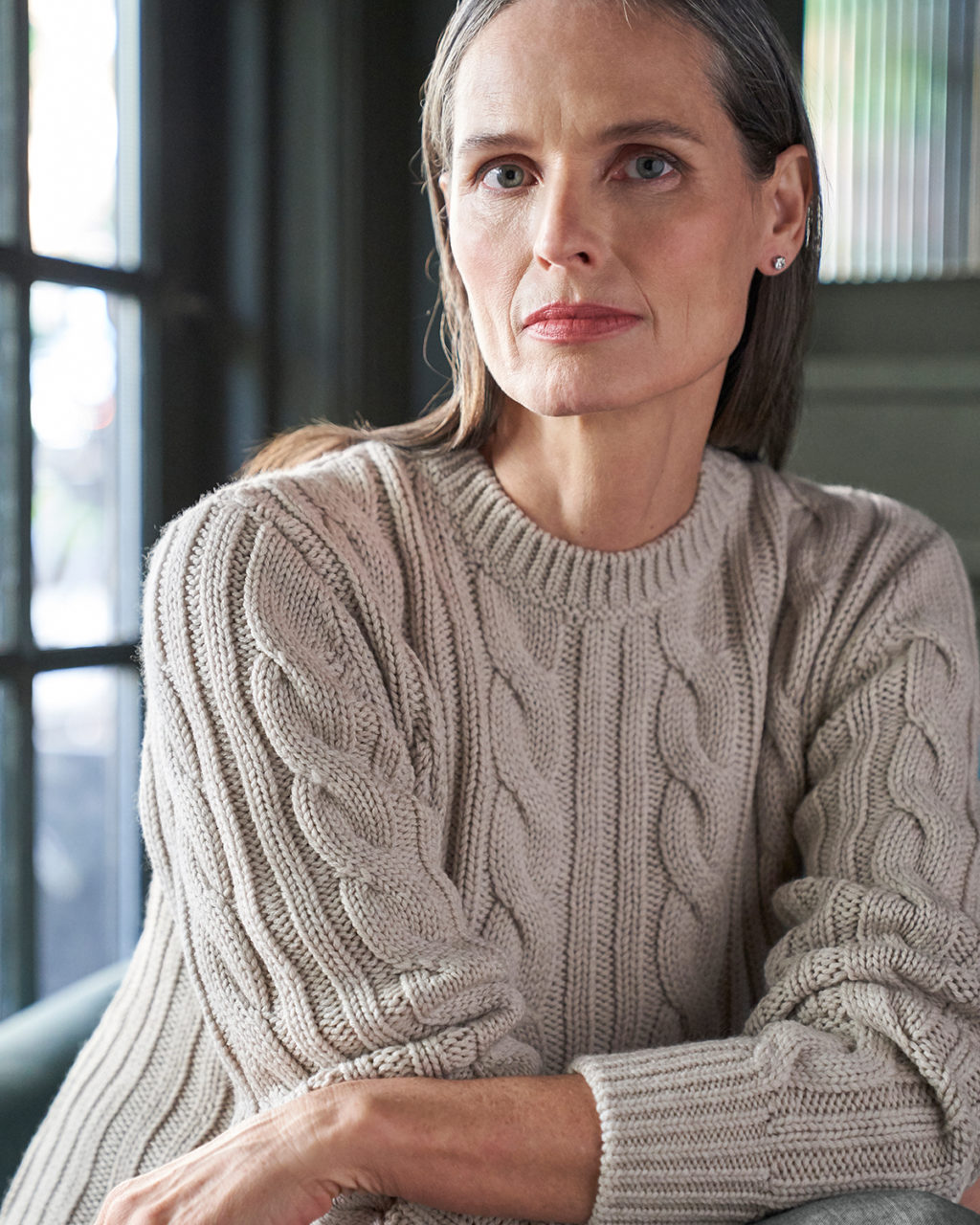
The Francis sweater and the Bezel earrings.
In general, the United Kingdom seems much more progressive than the United States on the menopause front. The largest trade union group in Wales—representing 200,000 women—created a toolkit to educate companies about menopause and suggests a range of accommodations for menopausal workers, including access to cold water and fresh air and switching out polyester uniforms for natural-fiber ones. Likewise, the University of Leicester launched a campaign to destigmatize menopause through a series of informal talks and by urging university employees say “menopause” aloud three times a day.
But is America ready for its menopause moment? Not quite. In a recent Wall Street Journal article about ageism at U.S. companies, older employees said they feared being rejected or avoided by younger colleagues, which prompted them to obscure their age by not mentioning the year they graduated from college, shortening their resumes, and refusing to display photos of their grandchildren, among other things.
And their fears are well-founded. According to Urban Institute economist Richard Johnson, 56% of U.S. workers age 50 or older are forced from their jobs before they’d planned to retire. What’s more, only one in 10 who find new employment earn as much as they did at their old jobs. And thus: lunchtime Botox, evening spin classes, and weekend appointments to cover up the mere hint of gray hair.
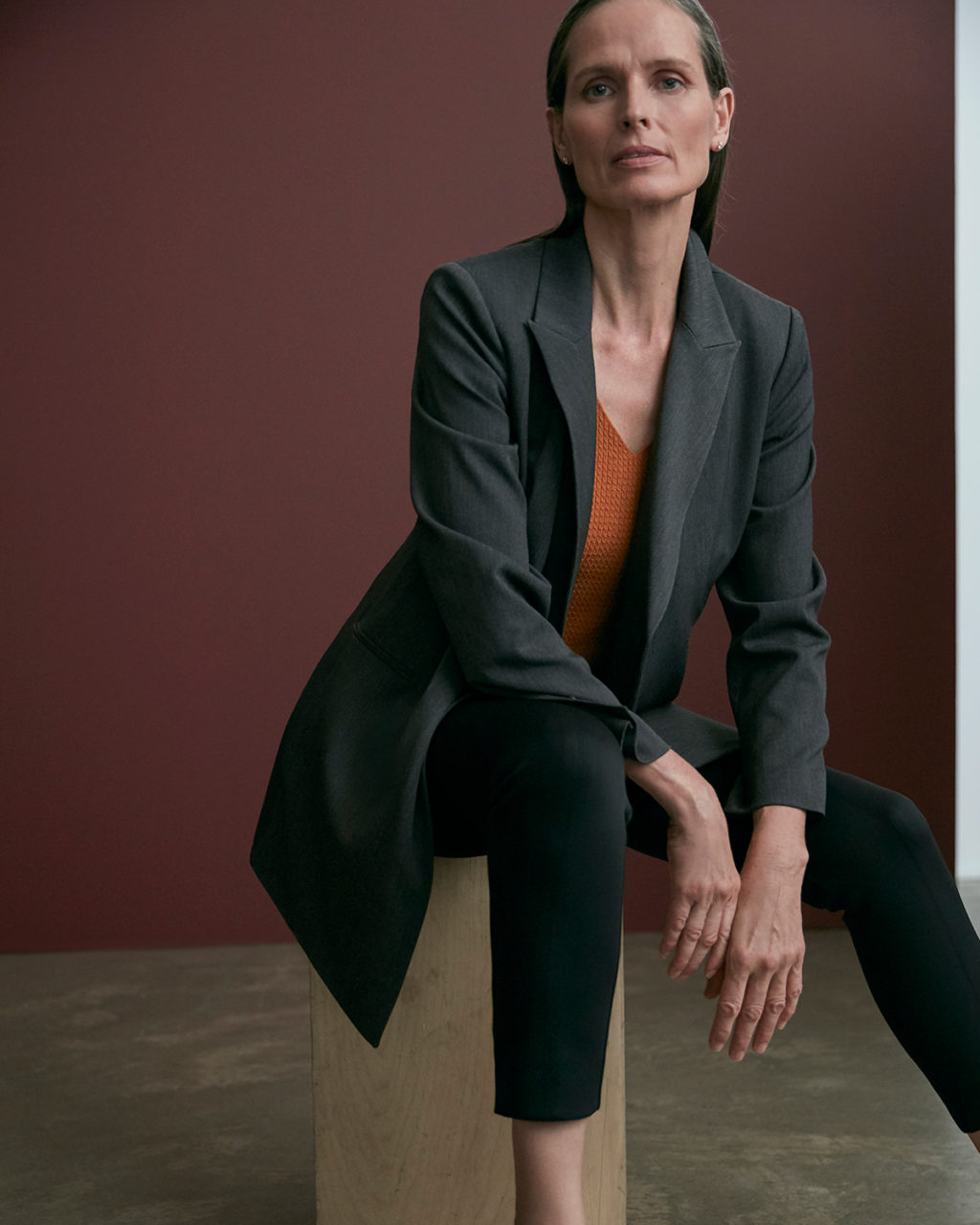
The Peggy top, the Carson blazer, the Foster pants, and the Bezel earrings.
Let’s face it: Our culture is biased against older women, despite all the skills and knowledge they bring to the table. And gendered ageism is a pernicious problem in the workplace, according to Catalyst, an advocacy group dedicated to advancing women’s careers. Studies have shown that older women face marginalization based on “lookism”—gendered youthful beauty standards—in addition to societal biases that perceive older employees as less innovative, less adaptive, and generally less qualified.
Work environments that are dominated by men or millennials can be particularly challenging. “I am the oldest of my work friends,” said Tawyna, 51, an administrative assistant in San Jose, California. “I don’t want to be labeled at work. I am known as the bubbly one or the one that is always in a good mood. It has been harder to fake that reputation now. I have started taking more bathroom breaks just to have my hot flashes alone away from people. I worry that my peers will think of me as being old or less capable at my job. hat I’m going through really isn’t anybody’s business until I come to adjust to it myself.”
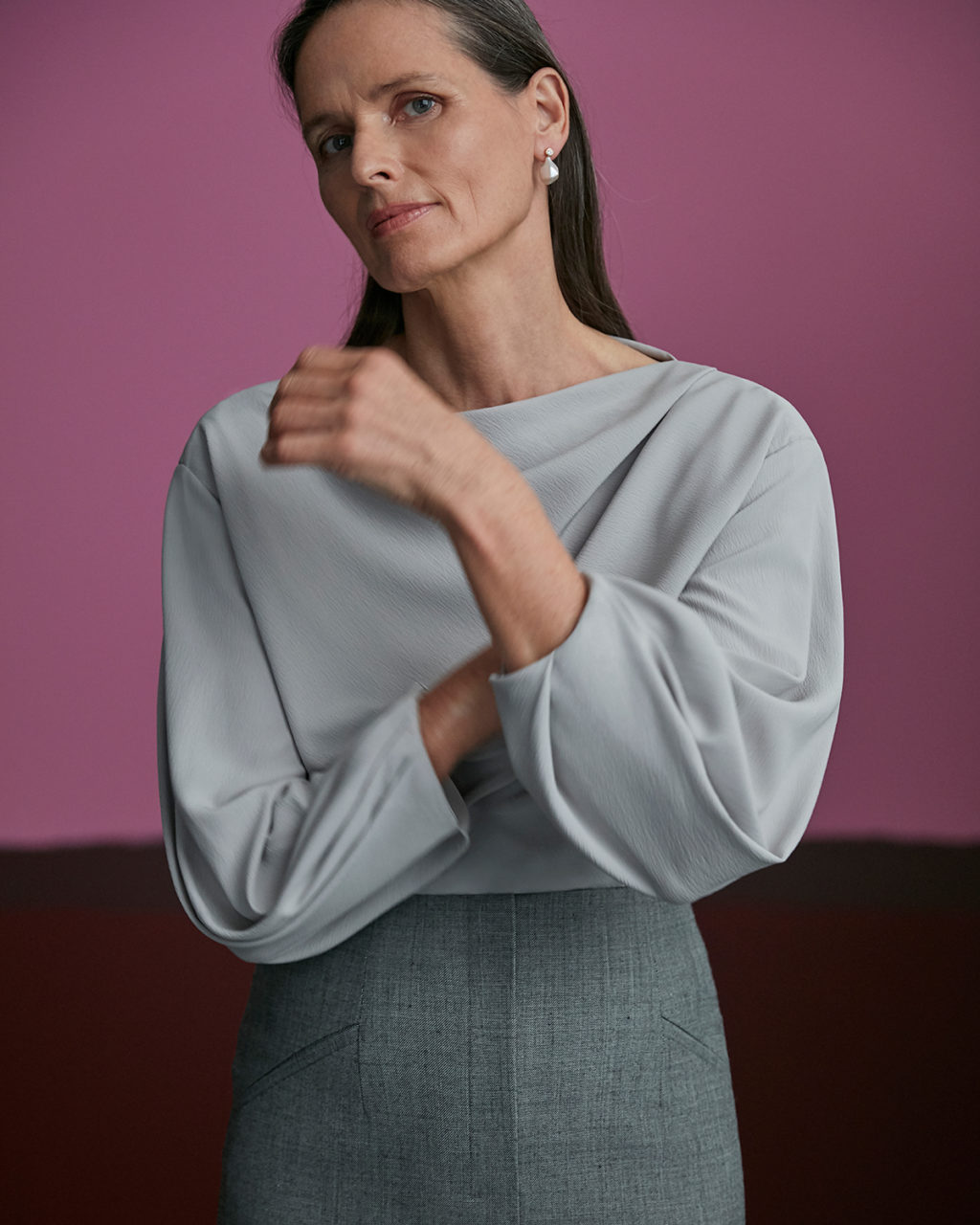
The Friedan top, the Surrey skirt, and the Capri earrings.
Given the ageism—and particularly the gendered ageism—that runs like a silent poison in the veins of many U.S. companies, the menopausal “thought leaders” interviewed for this article were skeptical about any benefit professional women would wrest from calling attention to their post-reproductive status.
“This is a much more complicated issue than simply advocating for turning down the temperature in the office,” said Stephanie S. Faubion, the Medical Director of The North American Menopause Society and the director of Mayo Clinic’s Center for Women’s Health. “I think such accommodations could potentially backfire and impede career advancement opportunities by inadvertently suggesting that midlife and older women are unable to do their jobs without special accommodations.”
Faubion stressed the menopausal symptoms are treatable, although many women don’t seek treatment or don’t receive adequate treatment when they do seek care—a problem that is exacerbated by the fact that most medical residents do not receive adequate education in menopause management. That said, we’ve come a long way since the early 1900s, when doctors prescribed powdered cow ovaries, opium, or vaginal injections of acetate of lead.
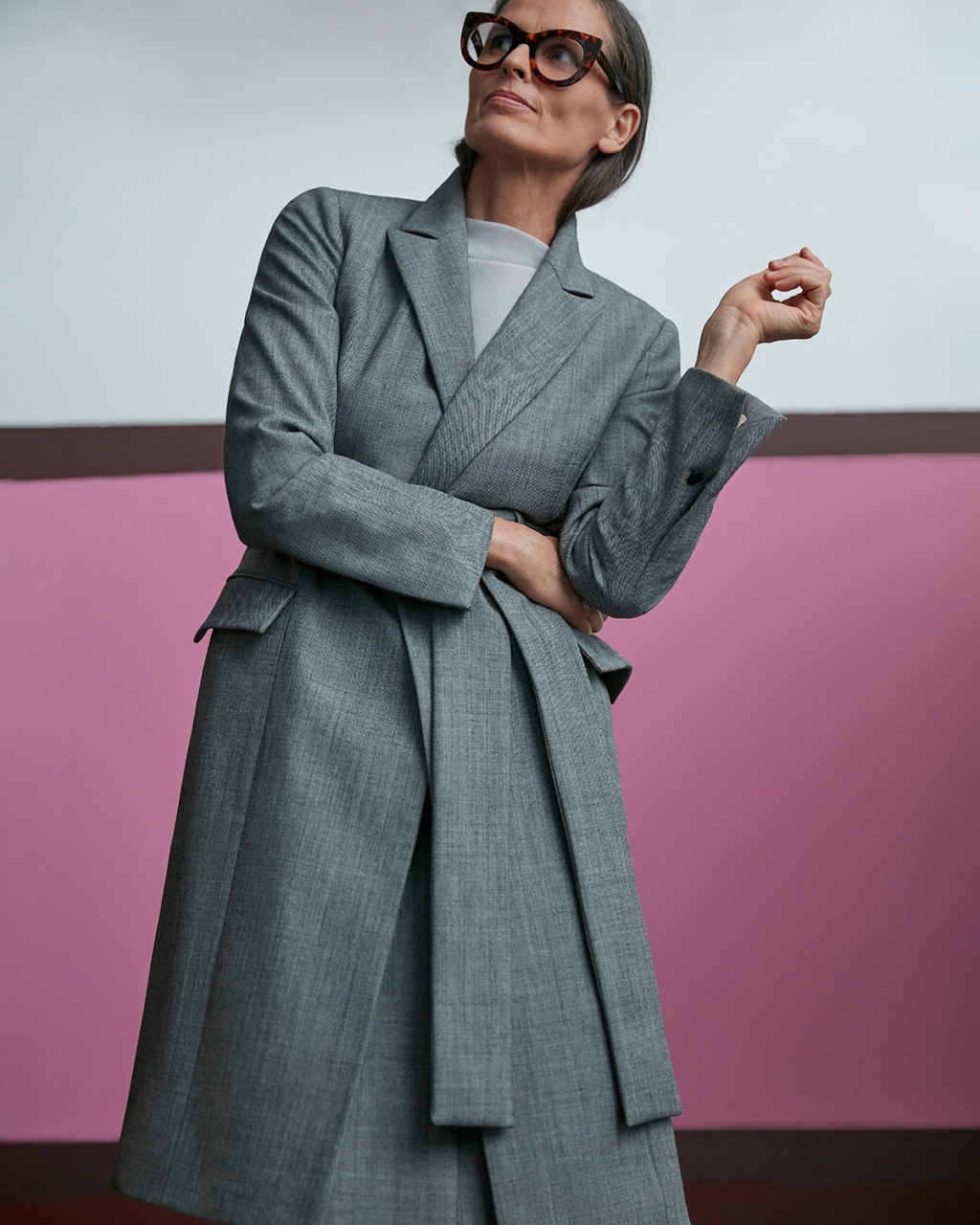
The Friedan top, the Cheryl coat, and the Elliot trouser.
“I think the question of why women hide menopause is a bit of a no-brainer. It’s a potent combination of sexism, ageism, and de-sexualization—the intersection of prejudice,” said Ruth Finkelstein, director of the Brookdale Center for Healthy Aging at Hunter College. “I’ll be fascinated to see whether Channel 4 has any uptake on its new benefits.”
Maybe if our companies—and our country—were run by middle-aged women, things would be different. But for now, women going through “The Change” in the U.S. may find the best support where women have traditionally found the best support—in sisterhood, whether on Facebook, in Meet-ups, over martinis, or wherever else wise women gather.







